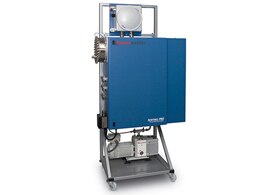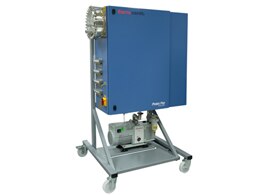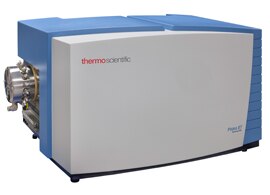Sentinel PRO environmental mass spectrometer
Process Analytical
Buniness Unit Manager : Mr. Pakpoom Noi-u-thai
Tel : 081-874-5764
E-mail : pakpoom@pico.co.th
Admin
Tel : 02-939-5711 ext. 456
E-mail : process@pico.co.th
Features
• Ensures worker safety by monitoring fugitive emissions of toxic gases in industrial plants
• Capable of monitoring 100 or more sample points within 15 minutes from 0.01-1 ppm
• Membrane inlet for enhanced sensitivity to VOCs
• Scanning magnetic sector technology
Fugitive emissions of toxic VOCs
Wherever there is potential danger for fugitive emissions of toxic organic vapors from a chemical production unit, regulating authorities often require plants to keep records of ambient vapor concentrations to protect workers from long-term exposure. Various forms of capture include evacuated vessels, organic vapor monitors, or purge and trap devices, all of which require samples to be sent for analysis. Alternatively, electrochemical sensors or open path FT-IR spectroscopy can provide more immediate results.
However, none of these technologies are capable of providing the spacial and temporal resolution required to qualify as actionable information.
Comprehensive data collection
With speed and precision, the Sentinel PRO analyzer monitors all the critical areas for short-term exposure levels of toxic VOCs, as well as provides accurate eight-hour, time-weighted, average exposure data.
With a high number of available sample points, many can be located close to potential leak points, such as valve stems, etc., enabling leak detection and correction before any toxic hazard is created.
Membrane inlet mass spectrometry
The analyzer is fitted with a membrane inlet to reduce the pressure of the sample air from atmospheric to the working pressure of the enclosed ion source. This allows a method of sample introduction that greatly enhances the system’s sensitivity to VOCs. Since the membrane is more permeable to VOCs than to major air gases, it can often provide enrichment by several orders of magnitude, including a benzene detection limit of <0.01 ppm. In addition, the ergonomic design of the probe permits easy membrane replacement during annual routine maintenance to minimize downtime and increase productivity.



